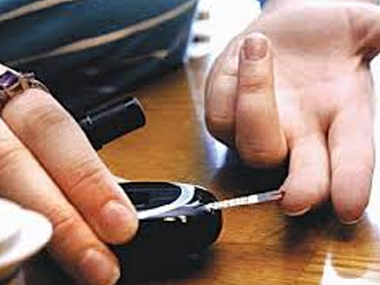You could be prediabetic because of a family history of the disease, because you have high cholesterol or polycystic ovary syndrome (PCOS), or even because you had gestational diabetes during your last pregnancy. The cause does matter as much at this point, but the effect can be far worse than you can imagine. According to a study published in the Indian Journal of Medical Research in 2018, the estimated prevalence of prediabetes in India is 14% - and that’s just those who have been tested. Prediabetes is an asymptomatic disease, so you might not even realise that you have it. However, if you have been diagnosed with prediabetes, you are more at risk of coronary artery disease, heart failure and stroke; that’s apart from the risk of actually getting diabetes. Yes, this condition is difficult to live with and active steps need to be taken to prevent its progression or to reverse it. There are a few important changes you need to make in your life if you are prediabetic. However, you cannot pick and choose which changes you want to adopt and which ones you don’t. Preventing the progression of prediabetes needs a holistic approach, and you need to make all of the following changes at once and stick to them.
1. Get enough sleep
Not getting about 8 hours of sleep every day can make your body even less effective at using insulin the right way. A study in Sleep Disorders in 2015 links poor sleep quality with prediabetes, and recommends getting 8 hours of sleep every night to reduce the risks involved with this disease.
2. Exercise more
Exercising for at least 30 minutes every day can improve your flexibility, muscle mass and help you lose weight - all of which is very important to minimise the progression of prediabetes. Make sure you burn more than you consume, and your body will be able to regulate blood sugar levels better.
3. A strict meal schedule
People with prediabetes are told to eat smaller meals, regularly, throughout the day to ensure that blood sugar levels don’t spike too high or dip too low. This is very important to maintain, along with fixing the times of these meals. Having a strict meal schedule can help manage your blood sugar levels better.
4. Portion control is a must
Apart from meal timings, the portion of said meals is equally important. While eliminating carbohydrates high on the glycaemic index (GI) is needed, you should ensure that all your meals, when combined, don’t turn out to be high in GI. Portion control is the best way to make sure this does not happen.
5. Cut out the sugar
This one is very obvious: have more sweets and your blood sugar levels are bound to spike. But it’s not just about cutting off sugar in desserts - you need to stop indulging in sugary drinks, fruit juices (which have concentrated sugars) and processed foods (which have added sugars). Sugar has a tendency of sneaking into your diet without you realising it, and you need to be more aware of this.
6. More fibre
Dietary fibre helps balance blood sugar levels and reduces insulin resistance, so you need to add more fibre-rich foods to your diet. Have more vegetables and whole grains, but limit your nut, seed and fruit consumption. Some of these, like dates and mangoes, have a very high concentration of sugar.
7. Go lean
Apart from losing weight and going lean physically, you also need to consume lean proteins (like chicken and fish) and avoid fatty, fried foods. If you consume too much fat, your body will find it impossible to lower your blood sugar levels after the meal is done with - that’s not something you want if you’re prediabetic. Your body will also store the fat and lead to weight gain.
8. Stop smoking and alcohol consumption
Nicotine works as a stimulant and raises blood sugar levels, so stop smoking if you have prediabetes. Alcohol consumption isn’t just dehydrating, but can also spike your blood sugar levels. If you can’t stop drinking socially completely, make sure your drink doesn’t have sugary juices, soda or liqueurs. Limit your alcohol consumption to two small drinks if you’re male, and one small drink if you’re female. For more information, read our article on Diabetes: Types, Symptoms, Causes and Treatment _._ Health articles in Firstpost are written by myUpchar.com, India’s first and biggest resource for verified medical information. At myUpchar, researchers and journalists work with doctors to bring you information on all things health.
)